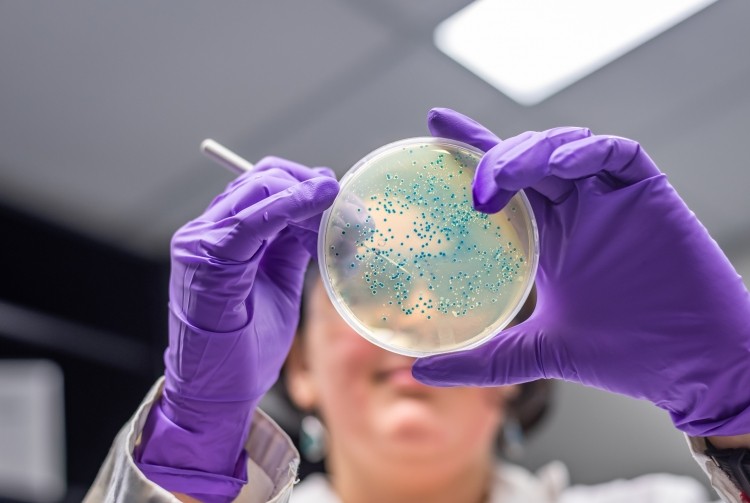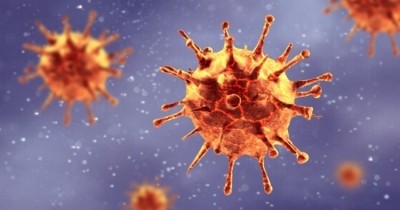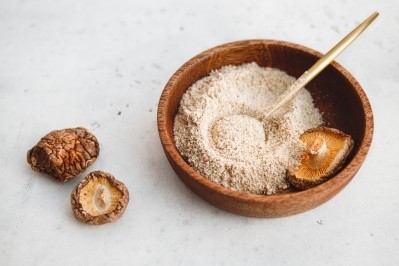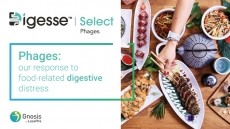COVID-19: Diet and supplements may be 'the need of the hour', say researchers

Researchers from the genomics company Leucine Rich Bio and the Rajiv Gandhi Cancer Institute and Research Centre, in India, point out that the presence of SARS Cov2 RNA in the stool of some patients and diarrhoea in others suggests suggests a link between the lung and the intestine.
Their research review, published in 'Virus Research', argues that in addition to current therapies, the patient's gut microbiota should be profiled and an effective diet recommended including specialised pre- and probiotics such as FOS, GOS and various lactobacilli strains to improve gut dysbiosis and 'thereby improving overall immune response in such patients'.
"This can be done by profiling gut microbiota of the individual patients and recommending effective diet including specialised pre/probiotics such as FOS, GOS and various lactobacilli strains to improve gut dysbiosis and thereby improving overall immune response in such patients. This may improve and fasten recovery in patients especially the elderly and the immune-compromised who are infected with SARS-Cov2 virus."
"Another line of action may be to prophylactically provide specialised supplements including prebiotics, probiotics to care givers who are in the front line in tackling this disease. Thus, effective nutritional strategy and specific functional foods aiming at the microbiota for specific population group may be the need of the hour."
Their recommendations are based on intelligence that elderly, immune-compromised patients and patients with other co-morbidities like type-2 diabetes, cardiovascular disorders fare poorly in combating Covid-19 and that a general imbalance of gut microbiota called “dysbiosis” is implicated in such patients and the elderly.
The report states: "Interestingly, it is known that in murine models, removal of certain gut bacteria by antibiotic leads to increased susceptibility to influenza virus infection in lungs.Also, several bacterial metabolites and bacterial fragments can modulate lung immune response. So, it is quite a possibility that gut dysbiosis may be influencing the clinical manifestation in Covid-19 as well. Microbial action on dietary fibre is known to increase short chain fatty acids in blood thereby protecting against allergic inflammation in the lungs.
"In fact, prebiotics such as wheat bran and fructo-oligosachharides (Fos), galactosachharides (Gos) are known to increase butyrate levels thereby reducing inflammation and improving conditions in asthma and cystic fibrosis.
"Mice model studies have shown that introduction of probiotic bacteria like Lactobacillus rhamnosus, Bifidobacterium lactis and Bifidobacterium breve can down regulate allergic response. Likewise, administration of Lactobacillus casei Shirota or Lactobacillus rhamnosus GG in cystic fibrosis patients leads to improvement in their conditions."
They conclude that, since gut microbiota is malleable and is modulated by diet as well as prebiotic and probiotic supplements, it is 'imperative' that personalised diet strategies are implemented as a supplement to current routine therapies.
They say that further research into the effect of Covid-19 on the gut microbiota profile, and vice versa, is needed.
Prior research
A team of scientists from Hong Kong recently carried out a pilot study investigating changes in the faecal microbiomes of patients with SARS-CoV-2 infection during hospitalisation and associations with severity and faecal shedding of virus.
The team performed shotgun metagenomic sequencing analyses of faecal samples from 15 patients with COVID-19, from February 5 through March 17, 2020.
Faecal samples were collected two or three times per week from time of hospitalisation until discharge; disease was categorized as mild (no radiographic evidence of pneumonia), moderate (pneumonia was present), severe (respiratory rate ≥30/min, or oxygen saturation ≤93% when breathing ambient air), or critical (respiratory failure requiring mechanical ventilation, shock, or organ failure requiring intensive care). They then compared the microbiome data with those from six subjects with community-acquired pneumonia and 15 healthy individuals (controls) and assessed gut microbiome profiles in association with disease severity and changes in faecal shedding of SARS-CoV-2.
Their results revealed that patients with COVID-19 had significant alterations in faecal microbiomes compared with controls, characterised by enrichment of opportunistic pathogens and depletion of beneficial commensals, throughout hospitalisation.
Specifically, the report states: "Depleted symbionts and gut dysbiosis persisted even after clearance of SARS-CoV-2 (determined from throat swabs) and resolution of respiratory symptoms. The baseline abundance of Coprobacillus, Clostridium ramosum, and Clostridium hathewayi correlated with COVID-19 severity; there was an inverse correlation between abundance of Faecalibacterium prausnitzii (an anti-inflammatory bacterium) and disease severity.
"Over the course of hospitalisation, Bacteroides dorei, Bacteroides thetaiotaomicron, Bacteroides massiliensis, and Bacteroides ovatus, which downregulate expression of ACE2 in murine gut, correlated inversely with SARS-CoV-2 load in faecal samples from patients."
The study authors conclude that strategies to alter the intestinal microbiota might reduce disease severity.
The two new papers come hot on the heals of NutraIngredients' article revealing that the UK’s most prominent scientists are asking the country’s health secretary Matt Hancock to assess the role of the gut microbiome in coronavirus citing evidence that points to its impact on susceptibility and recovery from the disease.
Authored by professor Glenn Gibson and Dr Gemma Walton from the university of Reading, along with Nottingham Trent university’s Dr Kirsty Hunter, the statement calls for ‘attention to be given to emerging but convincing evidence that gut health may be related to COVID-19.’
In discussing how to improve gastrointestinal health, the statement highlights the role of probiotics and prebiotics with references to their efficacy in reducing the incidence and duration of common upper respiratory tract infections.
“Some probiotics and prebiotics work by regulating immunity, including anti-inflammatory properties. Other mechanisms of effect include enhancement of the intestinal epithelial barrier competition with pathogens, acidification of the gut and adhesion to the intestinal epithelium.
“At the present time, it is the case that no probiotics nor prebiotics have been shown to better manage the symptoms associated with COVID-19, and research is ongoing.”
However, not everyone was supportive of this part of the statement. Writing on Twitter, Mike Cox says, “As a UK microbiome researcher and one specialising in respiratory disease I find it hard to express how irresponsible I think it is to suggest that probiotics or prebiotics should be even considered to be part of treatment for COVID-19. I am appalled the All-Party Parliamentary Group (APPG) would suggest this.
He goes on: “The letter is in no way measured, there have been cases of probiotics causing sepsis in ICU patients.
“The work omitted from the lead author of the letter's review on the topic titled "Using probiotics to flatten the curve," reveals to me the motivation of the letter is not careful gut microbiome research, but simple probiotics to the exclusion of reasoned research.”
NutraIngredients will host a 'Future of the Microbiome' webinar on Wednesday (June 3rd) discussing how the food, drink and supplements industry can continue to build on the positive momentum of microbiome science and innovation. Chaired by NutraIngredients Section Editor Nikki Hancocks, the expert panel will be joined by Dr Ruairi Robertson, BSc, PhDSir Henry Wellcome Postdoctoral Research Fellow at Queen Mary University of London; Miguel Toribio-Mateas, Director of Nutrition and Health Research at Atlas Biomed; Mike Roger, co-founder of Troo Foods; and Lisa MacFarlane, co-founder of The Gut Stuff. To register for this free webinar, click here.
Source: Virus Research
Dhar. D., and Mohanty. A
"Gut microbiota and Covid-19- possible link and implications"















